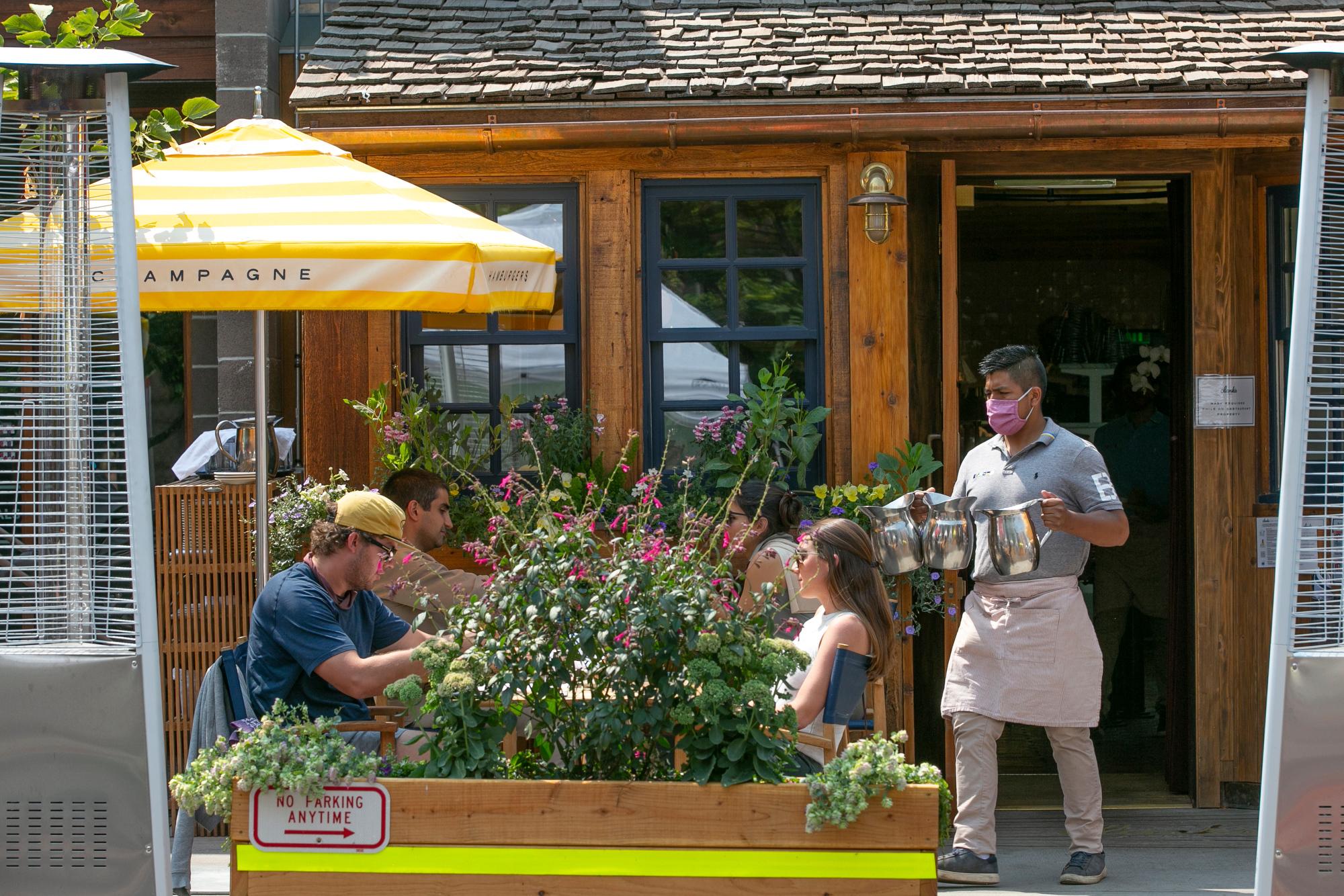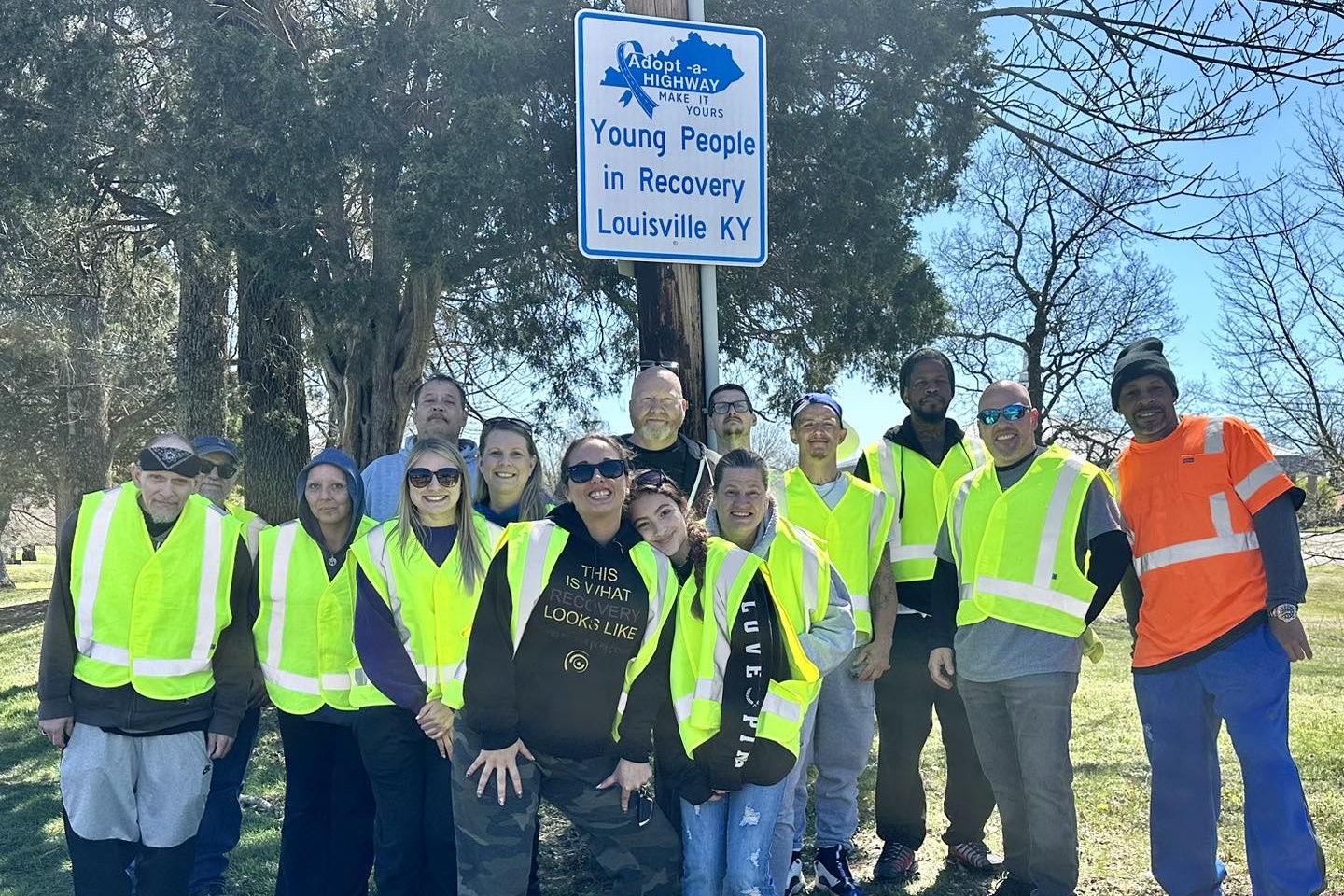
Colorado’s mountain towns are gearing up for summer tourism. These days, that means a mad sprint to hire enough staff.
While the ongoing labor crunch is tough on businesses, it's pretty good for workers. For instance, yoga punch cards, bike park passes and tuition reimbursement are all on the table when it comes to perks for hiring hospitality workers in the Aspen area this summer. And of course, there’s more money, too.
Sarah Sanders manages the Collective Snowmass, an event space for everything from concerts and comedy to bingo nights and wedding parties. There’s also a game room and an ice rink in winter. Sanders bumped up hourly wages from $18 to $22 because she had zero job applicants during winter.
The raise helped, but now she’s short-staffed heading into the peak of the summer season, which really gets going in late June. She’s hiring people to set up sound systems and outfit the space for private parties, and for more straightforward roles like accepting payment at the game room.
Sanders struck out at a recent job fair in the area.
“Every business is offering really nice incentive bonuses right now, signing bonuses, higher wages than previously .… It’s much more competitive than it has been in the past,” she said.
- An affordable housing fight in Vail is pitting the ski resort against some residents, the town, and bighorn sheep
- A number of Colorado towns and cities are asking for voters’ help to solve their lack of affordable housing
- Ski Towns Are Absorbing Much Of The Coronavirus Exodus — And It Threatens To Strain Their Health Care Infrastructures
Martina Lynch is the director of talent and culture for Aspen’s Hotel Jerome. She was at the same job fair Sanders attended. She fared a little better than Sanders, but still had a hard time finding qualified jobseekers.
“Job fairs aren’t what they used to be anymore. You used to have a job fair and you would get so many candidates that would come through,” Lynch said. “Now, there’s 40 companies and 30 people who are looking for jobs.”
She tries to grab a table right up front so it’s the first one people see when they walk in. But that’s not the only thing Lynch is doing to stand out. The Hotel Jerome recently launched a program to pay some education expenses – as long as the degree the employee is working toward is related to their job.
“If someone in food and beverage wants to be a certified sommelier, we will pay for a portion of the cost if they've been here for a year .… The longer you’ve been here, the more money you get reimbursed and allocated,” she said.
Probably the biggest perk an employer can offer in Colorado’s mountain towns is an affordable place to live. A lot of businesses like the Hotel Jerome offer subsidized rent – but there’s just not enough to go around.
Rose Rossello is the HR manager for the Viewline Resort and Wildwood Hotel in Snowmass. They house about 100 employees at the Wildwood – and they rent other units around town. But Rossello is still struggling to fill key roles, and thinks housing costs are a big part of that. A position in accounts payable was open for six months, Rosello said. She just filled it this week.
"Definitely there's a big struggle there,” she said. “Servers and bartenders are also super tough,” she said.
The most critical roles come with housing when it’s available, Rossello said. To further sweeten the pot, there’s a $1,000 signing bonus.
Finding affordable housing isn’t a new challenge in Colorado’s mountain communities, but it’s definitely gotten more acute in recent years. It’s difficult to pinpoint a single cause, but locals point to the proliferation of short-term rentals, people flocking to remote locations during the pandemic and the precipitous rise in housing costs across the U.S.
Aspen Skiing Company is the largest employer in the area, and has the resources to offer good deals on housing for its workers. But even they are feeling the crunch recently, according to spokesperson Jeff Hanle. The resort operator typically puts its corporate housing back on the market during the summer months because the winter is far busier for the ski business. But not this year, Hanle said.
“In the past … we didn’t need the housing [in summer]. But it’s gotten to the point where we need housing all the time now,” Hanle said.









